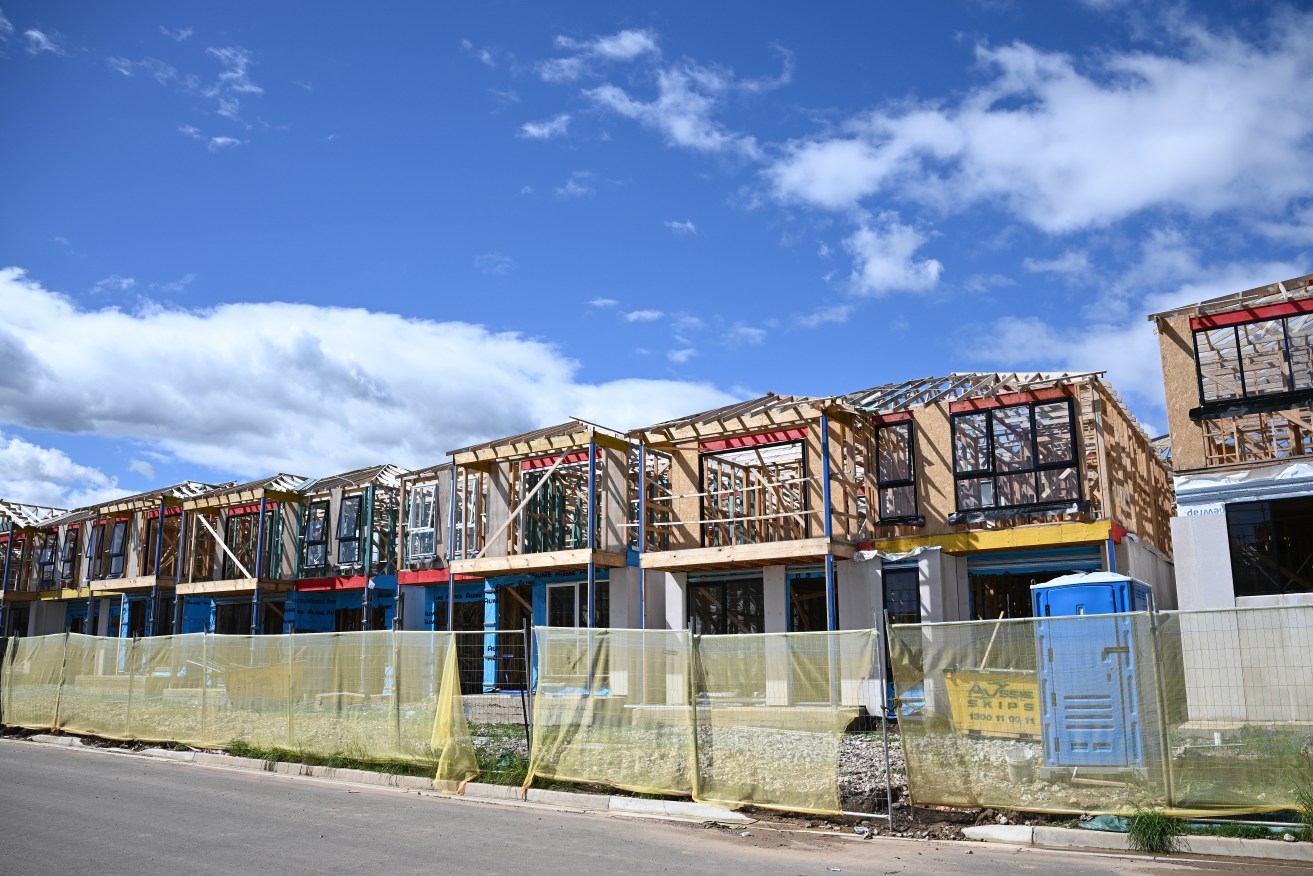Blue-sky thinking on housing crisis hits turbulence
Political squabbling over a $10b package to tackle a national housing crisis after years of policy neglect leaves the desperate out in the cold, argues Maria Palumbo.

Photo: AAP/Dan Himbrechts
Chickens shouldn’t be counted until well after they’re hatched, and preferably only when they’ve learned to walk, lay eggs and maybe even fly short distances.
This rule applies doubly to political promises which, however well intentioned, are always at the mercy of the system.
The much vaunted $10 billion Housing Australia Future Fund – better known as the HAFF – is a classic example.
Since the HAFF was announced with much fanfare in February, community housing providers like Junction have been working in good faith with developers, state government and councils to get projects ready for launch – only for this crucial initiative to be stalled by arguments in Canberra.
If the Prime Minister – who himself grew up in public housing – sounds angry with the Greens’ contrary position on the HAFF, I can tell you that’s nothing compared with the utter despair being felt by the hundreds of thousands of Australians who can’t get a home of their own.
Sure, it’s easy to argue the HAFF by itself is not enough to fix the housing crisis but compared with the inactivity from Canberra since the Rudd government’s stimulus package for social housing – way back in 2009 – it’s the start we need to build a sustainable model for the future. So please, can we end the political posturing and get on with it?
The last decade has seen the proportion of social housing decline from 4.7 per cent to 4.2 per cent of households, while demand for housing across the country has increased to almost three times as fast as the growth of the population.
Let’s be clear: social housing has been in decline because successive governments have not prioritised the people who need it. This is a problem of their own making.
Therefore, the Albanese Government’s newly announced $2 billion Social Housing Accelerator should be commended. The federal government says all the money will be committed by states and territories within two years.
Kudos also to the Malinauskas Government for committing to stop the sales of public housing and build 560 more. Coupled with the $135 million allocation from the Albanese Accelerator funding, South Australia will see an uplift in social housing for the first time in 15 years.
Abolishing stamp duty for first home buyers on new homes valued up to $650,000 or on vacant land valued up to $400,000 is also a much-needed initiative, along with HomeStart’s new 2% deposit loan. It’s hard enough for first home buyers to save up for a deposit let alone the impost of stamp duty and high mortgage insurance, so this will be a welcome relief for those who are trying to realise their dream of home ownership.
Let’s be clear: social housing has been in decline because successive governments have not prioritised the people who need it
However, as meaningful as all these initiatives are, they’re still well short of the transformative approach we need to take to affordable housing in Australia. One-off budget allocations should be converted into a sustainable model that assures investor certainty and consistency – which is not the case when we’re subject to political whims – as the evidence shows.
We must consider that while social housing is a crucial safety net for those who are most vulnerable – around 4 per cent of households – there’s been very little assistance over the years for the 30 per cent of households in rental stress, essential workers, and the like – otherwise known as the missing middle.
The principal benefit of the HAFF is not so much the amount as it is the establishment of a legislated mechanism to create affordable rental housing as its own asset class to attract socially minded investors to build long term, secure rental housing for the rapidly growing missing middle.
And every day that our politicians delay, the problem gets worse.
Maria Palumbo is CEO of Junction, a social enterprise supporting more than 10,000 South Australians each year through housing and community services.




